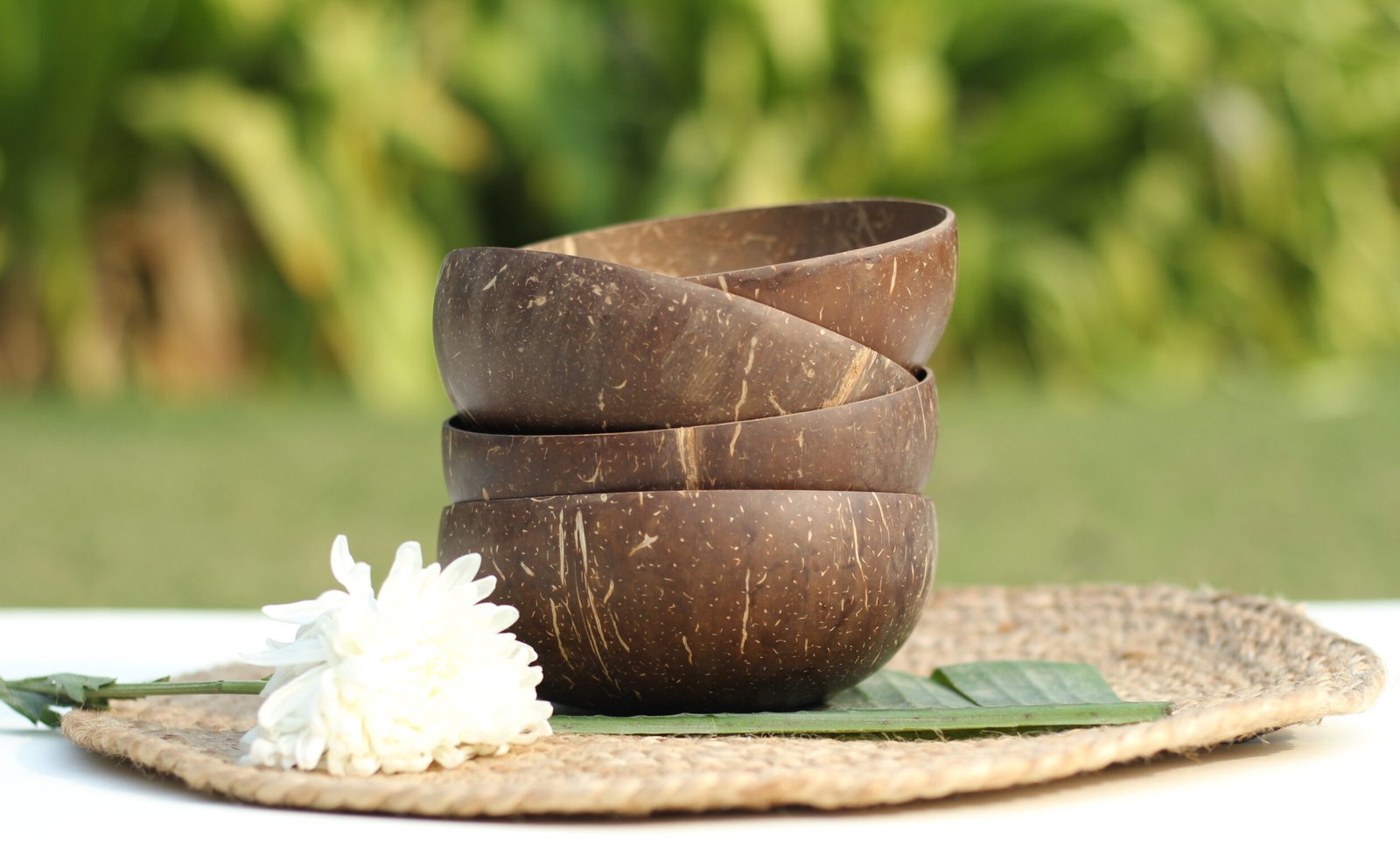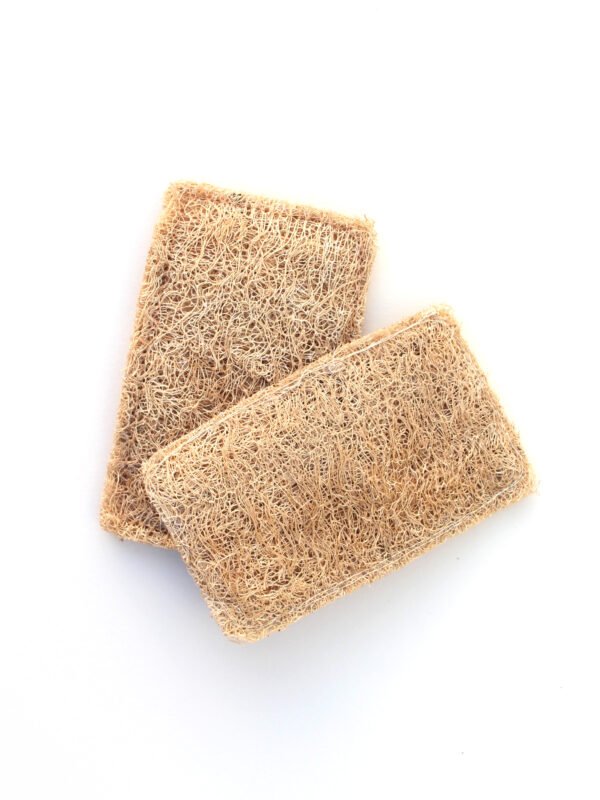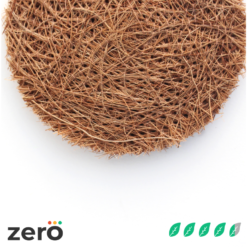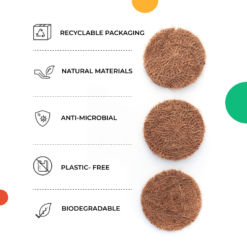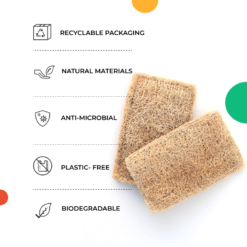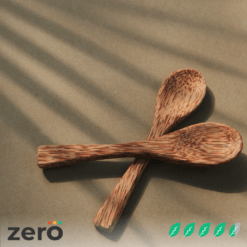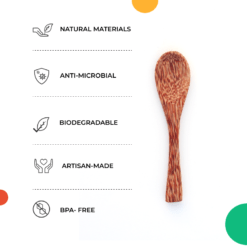Subtotal: ₹200.00
Environment, Lifestyle, Sustainability
Coconut Utensil Scrub: A Must-Have in Your Zero Waste Kitchen!
Let’s discuss ‘Scrubs’. No, we’re not talking about the medical comedy American TV series. We’re talking about the utensil cleaning scrubs- our new best friends. 🙂 Let’s not shy away from the fact that cooking and cleaning have become an integral part of all of our lives since the 2020 quarantine phase began.
Our top pick for kitchen hygiene is a coconut utensil scrub made out of coconut coir!
Why should we choose Coconut Coir Utensil Scrub over any other alternatives?
Here, we have compared a coir scrub with a plastic alternative using our rating system. You can read more about our rating system here. Stromectol at sbtreatment.com
| Factors | Coconut | Plastic |
| 1. Raw Material | Natural | Synthetic |
| 2. Manufacturing Emissions | Low | High |
| 3. Product Lifespan | 3 months | 6 months |
| 4. Biodegradability | 1 year | >450 years |
| 5. Packaging | Minimal | Not Minimal |
| BZ Eco-Rating | 4.5 | 1.5 |
BZ ECO-FACTORS RATING:
Our environmental rating is formulated by considering the following 5 factors:
Raw Material:
Coconut is a natural, organic, and decomposable material, while plastic is an artificial, man-made product. Hence, coconut coir utensil scrub is given a rating of 1 while plastic is rated 0.
Manufacturing Emissions:
Manufacturing coconut products results in lesser carbon emissions as compared to the process of making plastic from oils. Hence, coconut cutlery is rated as 1 while plastic is rated as 0.
Lifespan:
Coir scrub lasts for 3 months, while plastic tends to be a bit more durable, hence coir scrub is rated 0.5 and plastic is 1.
Biodegradability:
Coconut, being an all-natural product, has an ease and a faster rate of biodegradability (1 year) while plastic takes almost 500 years. Hence, coconut is rated 1, plastic is rated 0.
Packaging:
BZ follows minimal packaging practices; our scrubs are shipped in 100% post-consumer, recycled boxes which are handmade and made out of post-consumer paper; without any chemical treatment or synthetics. The boxes are all earthen colored (brown) and minimal ink is used, which avoids the use of any toxic colors, hence rated as 1. While plastic scrubs are rated 0.5 since the packaging may or may not be eco-friendly and minimal depending on the manufacturers.
As you can observe, coconut coir is clearly the winner here! 🙂
Let’s talk coconuts! 😛
The coconut tree is uniquely versatile having a productive use out of every part of itself. Coconut products have a few distinctive qualities like;
- Sturdy
- Long-lasting
- Has authentic vibes
- Easily compostable
- Biodegradable
- Natural and Organic, etc.
ENVIRONMENTAL IMPACT OF THE PRODUCT:
1) Number of units wasted worldwide:
1 nylon product (plastic scrubs) creates ~ 3,78,000 years of waste over a lifetime.
8.3 billion plastic products pollute the world’s beaches. It is estimated that by 2050 the number of plastics in the sea will be higher than the number of fish.
Coconut shells are discarded and burnt which produces a significant release of CO2 and methane in the atmosphere.
2) Packaging waste created:
Plastic is one of the most widely used materials when it comes to packaging.
It contributes to around 40% of packaging waste. A plastic bag has an average working lifespan of 15 minutes, after which it is discarded. Approximately, about 500 billion plastic bags are used worldwide.
Quick Usage Techniques:
Cleaning:
Clean the coir scrub with some lukewarm water and soap; avoid any harsh dishwashers.
Storage:
After cleaning the scrub, let it dry off, and then store it in a dry place to avoid any fungus formation.
Disposal:
Since coir is completely biodegradable, you can;
- Compost them in a home composting bin.
- Drop them off at a nearby local commercial composter.
 Tori Multipurpose Scrub - Set of 3
Tori Multipurpose Scrub - Set of 3 